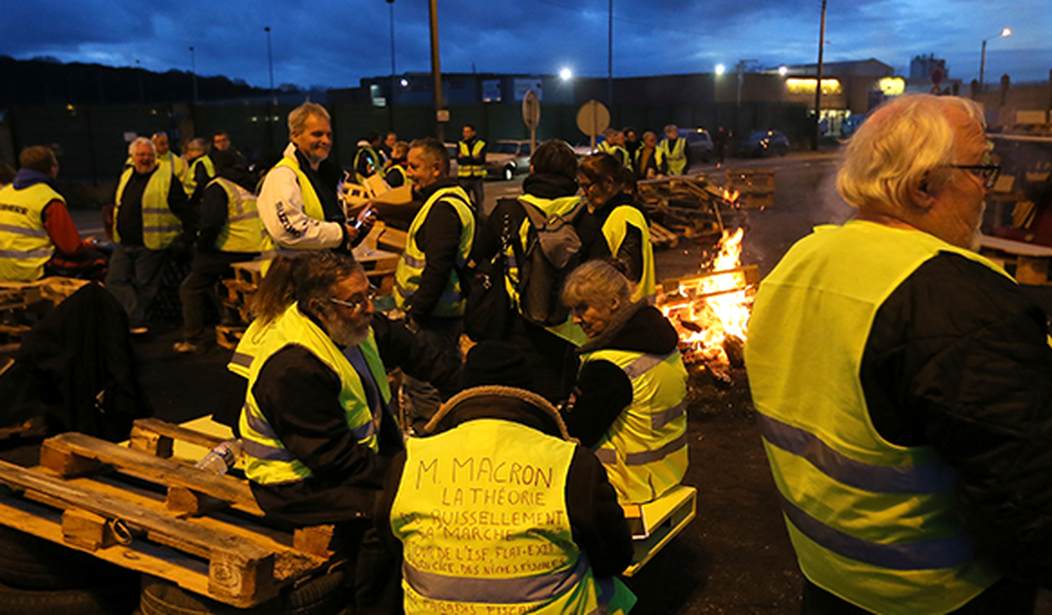This week, France set itself on fire; the stock market tumbled; and news broke that low-wage employment tumbled in the city of Seattle. What do these three headlines have in common? That policies aren't wish lists -- they have real-world consequences.
Begin in France, where the so-called "yellow vests" -- a group of anti-tax protesters dressed in safety vests -- tore up Paris. Rioters defaced the Arc de Triomphe, burned cars and attacked police with stones. They were protesting the exorbitant fuel taxes pursued by French President Emmanuel Macron, taxes designed to curb climate change. The fuel tax rates in France are already estimated to be a whopping 64 percent on unleaded fuel and 59 percent on diesel fuel. The riots resulted in the French government backing down, with French Prime Minister Edouard Philippe announcing, "No tax is worth putting in danger the unity of the nation." By polling data, more than 70 percent of French voters support the yellow vests, and Macron's approval rating has dropped to an anemic 23 percent.
Move to the United States, where the stock market continued to experience outsized volatility this week -- volatility increased by the hot-and-cold pronouncements of President Trump on trade. On Monday, thanks in part to optimistic pronouncements on the postponement of a trade war with China, the Dow Jones Industrial Average rose more than 250 points. On Tuesday, President Trump tweeted that he favors protectionism, dubbing himself "a Tariff Man," and the stock market promptly plummeted more than 600 points. It turns out that talking up the economic benefits of domestic taxation of consumers doesn't do much for consumer confidence or investor optimism.
Recommended
Now take a look at Seattle, where a new analysis from economists at the University of Washington shows that the city's forced $15 minimum wage had resulted in serious consequences for low-wage workers. The study found that the costs to low-wage workers outpaced benefits "by a ratio of three to one," according to the Washington Post, amounting to an average of $125 per month lost to the average low-wage worker.
But no matter: So long as there are politicians, there will be policies that achieve the opposite of their intended consequences. Politicians, after all, don't have to show results. All they have to demonstrate is a willingness to "help." Thus, the G-20 last year announced that carbon taxes would offer "significant opportunities for modernizing our economies" -- workers be damned. President Trump has declared that tariffs are an economic winner, despite reams of evidence to the contrary. And Rep.-elect Alexandria Ocasio-Cortez proclaims that we mustn't "whine about minimum wage" -- if we don't implement a minimum wage, we will only be paying "human labor less than they require to live."
Policies have real-world consequences, regardless of how much we wish they don't. It's failure to cope with that basic fact that leads to so much of the finger-pointing we see in politics, with each side accusing the other of bad intention -- as though pointing out a policy's failure is equivalent to rooting for failure. It isn't. But rooting for reality is a far more sustainable economic strategy than fighting against it.
Ben Shapiro, 34, is a graduate of UCLA and Harvard Law School, host of "The Ben Shapiro Show" and editor-in-chief of DailyWire.com. He is The New York Times best-selling author of "Bullies." He lives with his wife and two children in Los Angeles.

























Join the conversation as a VIP Member